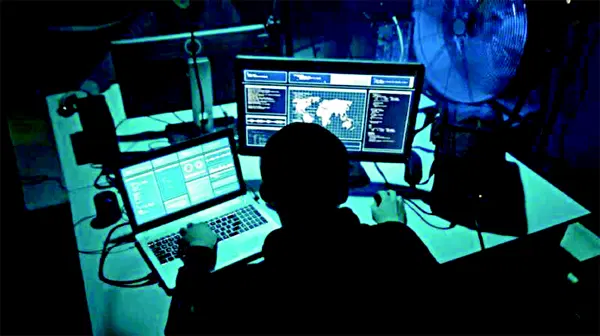1. Introduction
Siemsoultions.tech is an online resource that focuses on the powerful world of Security Information and Event Management (SIEM) and modern cybersecurity. In today’s digital era, where every organization depends on technology, protecting information and monitoring threats has become a top priority. Siemsoultions.tech provides valuable insights into how SIEM systems work, their importance in identifying cyber risks, and how professionals can use these systems to strengthen security infrastructures.
The purpose of this content is to make complex cybersecurity topics simple and understandable. Whether you are a beginner learning about SIEM for the first time or an experienced IT expert, Siemsoultions.tech offers a collection of articles, malware analysis reports, and technical resources that can help you stay ahead of evolving cyber threats.
2. Background & Context
Before diving into what Siemsoultions.tech offers, it’s essential to understand the concept behind SIEM.
2.1 What is SIEM?
SIEM stands for Security Information and Event Management. It is a system that collects, analyzes, and monitors logs from various sources in a network, helping detect unusual activities that might indicate security breaches.
In simple terms, SIEM acts like the “brain” of an organization’s security operations. It gathers information from firewalls, servers, applications, and endpoints, and uses advanced algorithms to spot suspicious behavior or attacks.
2.2 Evolution of SIEM Systems
Originally, SIEM tools were used just for logging and compliance reporting. However, with the growth of cyberattacks and advanced malware, SIEM evolved into intelligent platforms that use machine learning, automation, and threat intelligence to predict and prevent incidents before they occur.
The table below highlights the difference between traditional and next-generation SIEM systems:
| Feature | Traditional SIEM | Next-Generation SIEM |
|---|---|---|
| Log Management | Basic storage and alerts | Intelligent analytics and real-time insights |
| Detection | Manual rule-based | AI-driven and behavior-based |
| Integration | Limited sources | Cloud, endpoint, and hybrid integration |
| Response | Manual | Automated incident response (SOAR) |
Siemsoultions.tech frequently covers these advancements, explaining how the new generation of SIEM systems empowers organizations to act faster and smarter.
3. Exploring Siemsoultions.tech
Siemsoultions.tech is more than just a website — it’s an educational and research-driven cybersecurity hub.
3.1 Website Overview
The homepage of Siemsoultions.tech introduces visitors to topics such as malware research, cybersecurity reports, and threat intelligence studies. Its clean design and easy navigation make it convenient for both technical and non-technical audiences.
3.2 Key Topics on the Site
The site includes detailed write-ups about emerging malware, such as the “Blitz” malware report, which examines infection patterns, code structures, and mitigation methods. It also discusses:
- SIEM configuration techniques
- Data analysis methods
- System integration best practices
- Security policy enforcement
Siemsoultions.tech helps bridge the gap between technical details and understandable explanations, ensuring every reader gains practical cybersecurity knowledge.
4. Threat Analysis & Malware Reports
One of the major strengths of Siemsoultions.tech is its deep focus on threat research. For example, the site’s coverage of “Blitz” malware explains how this malicious code spreads through phishing emails and compromised applications.
The content typically outlines:
- The malware’s purpose and infection route
- How it evades detection systems
- How SIEM tools can identify and respond to it
These detailed reports educate readers on real-world cyber threats and demonstrate how SIEM systems play a role in incident detection, log analysis, and automated response.
5. Technical Foundations of SIEM
To truly understand what Siemsoultions.tech offers, it helps to know the key components of SIEM technology.
- Log Collection: SIEM gathers logs from various sources—servers, routers, and cloud systems—to create a centralized database.
- Event Correlation: The system connects related activities, identifying possible patterns of attack.
- Anomaly Detection: Through machine learning, SIEM identifies behaviors that differ from the norm.
- Incident Response: Modern SIEMs often include automation that helps respond to threats instantly.
- Compliance Reporting: Businesses use SIEM to meet standards like GDPR, HIPAA, and PCI DSS.
The integration of these features creates a robust defense mechanism that protects organizations from internal and external threats.
6. Case Studies and Real-World Use
Siemsoultions.tech also highlights how organizations implement SIEM in real environments. For example:
- Financial institutions use SIEM to detect fraudulent transactions in real time.
- Healthcare organizations rely on it for patient data protection and HIPAA compliance.
- E-commerce businesses utilize SIEM for securing payment gateways and preventing data breaches.
These examples demonstrate the versatility and necessity of SIEM solutions across industries.
7. Choosing the Right SIEM Solution
Siemsoultions.tech provides helpful guidance for selecting the right SIEM tool based on company needs. Important factors include:
- Scalability: Can it handle large data volumes?
- Integration: Does it support cloud and on-premises environments?
- Cost-effectiveness: Are licensing and maintenance affordable?
- User-friendliness: Is the dashboard intuitive for analysts?
By offering these comparisons and criteria, Siemsoultions.tech assists organizations in making informed purchasing decisions.
8. Future Trends in SIEM
The cybersecurity world is evolving rapidly, and Siemsoultions.tech keeps its audience informed about new developments such as:
- Artificial Intelligence and Automation: Machine learning helps predict attacks and reduce false alerts.
- Cloud-native SIEMs: Designed for flexible, hybrid, and remote infrastructures.
- XDR Integration: Extending detection and response across endpoints, networks, and users.
- Zero Trust Security: A model where every user or device must continuously prove its trustworthiness.
These innovations will shape how organizations protect their digital environments in the coming years.
9. Best Practices Recommended by Siemsoultions.tech
Siemsoultions.tech also encourages the adoption of key cybersecurity best practices:
- Regular monitoring of logs and alerts.
- Frequent updates of detection rules and system patches.
- Incident response planning for faster recovery.
- Employee training to prevent phishing and internal threats.
- Data encryption and access control to secure sensitive assets.
Such steps create a layered defense, reducing the risk of data breaches.
10. Conclusion
In conclusion, Siemsoultions.tech stands as a valuable online source for anyone interested in understanding and improving cybersecurity. By simplifying complex SIEM concepts and sharing detailed malware reports, the platform helps individuals and organizations strengthen their security posture.
Through its commitment to research, clarity, and accessibility, Siemsoultions.tech continues to contribute to the growing community of cybersecurity professionals who aim to protect digital systems in a world full of evolving threats.
Summary Table: Why Siemsoultions.tech is Useful
| Area | Description | Benefit |
|---|---|---|
| Education | Simplifies complex SIEM concepts | Easy for beginners and professionals |
| Research | Shares malware analysis and reports | Helps understand real-world threats |
| Guidance | Offers advice on choosing tools and security methods | Supports better decision-making |
| Innovation | Discusses AI, cloud, and next-gen trends | Keeps readers updated with latest tech |
Final Thought:
If you’re searching for authentic, educational, and practical cybersecurity knowledge, Siemsoultions.tech is a trusted source worth exploring. It combines technology insights, real-world data, and simple explanations—making it an excellent platform for learning about modern SIEM and digital protection.















Leave a Reply